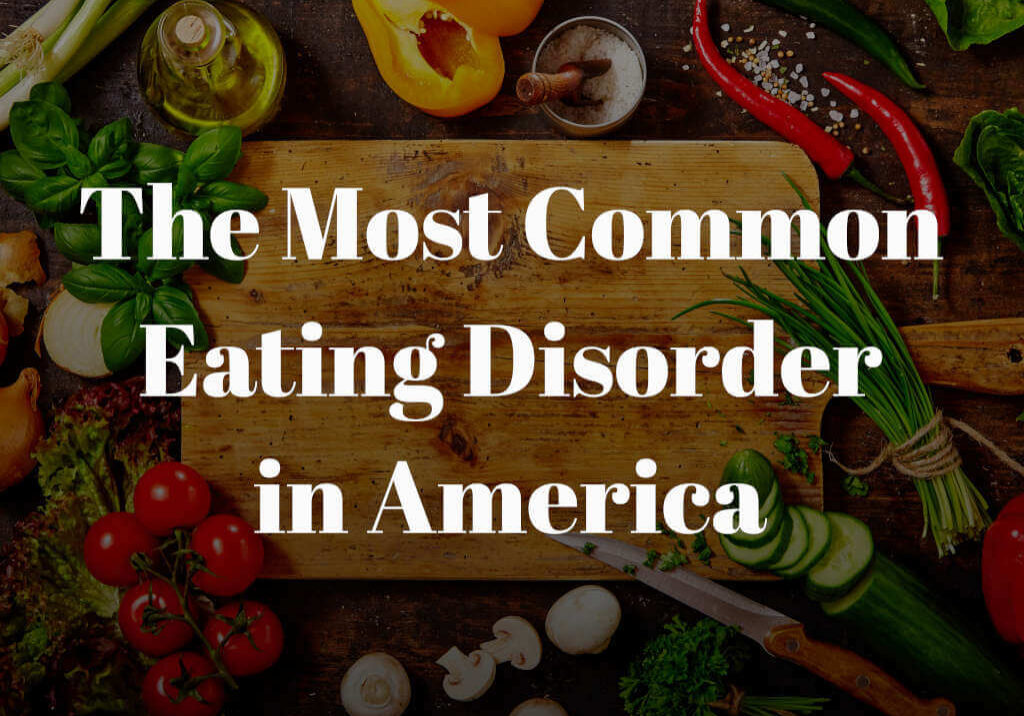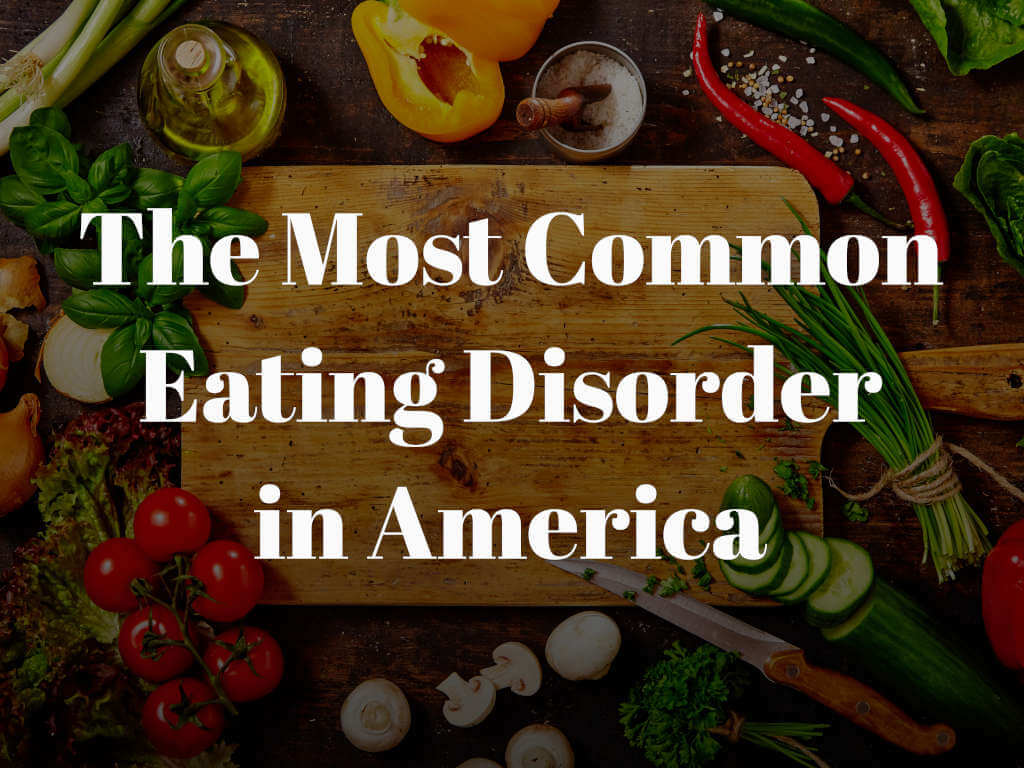The Most Common Eating Disorder in America

What is An Eating Disorder?
 An eating disorder is a life-threatening disease that causes people to go to extreme measures to control their weight and body image. They are a severe and sometimes fatal illness that causes serious changes in someone’s eating behaviors. The different types of eating disorders are binge eating disorder, compulsive eating disorder, anorexia nervosa and bulimia nervosa.
An eating disorder is a life-threatening disease that causes people to go to extreme measures to control their weight and body image. They are a severe and sometimes fatal illness that causes serious changes in someone’s eating behaviors. The different types of eating disorders are binge eating disorder, compulsive eating disorder, anorexia nervosa and bulimia nervosa.
Some statistics on eating disorders:
- Up to 30 million people in the United States of all ages and genders suffer from eating disorders
- Approximately 13% of women over the age of 50 engage in some type of eating disorder behaviors
- All races and ethnic groups are affected by eating disorders
- A person’s genes, environmental and personality factors all create a risk to develop an eating disorder
- Eating disorders have one of the highest mortality rates among all mental health illnesses
- In the transgender population, 16% of people have reported having an eating disorder
Anorexia Nervosa
The most common eating disorder in America is anorexia nervosa. It is classified by extreme weight loss, or lack of weight gain in growing children; difficulty maintaining proper weight for height, weight and body type. It is diagnosed when a person goes below 15% of their ideal body weight. Generally, people with this disorder will restrict or limit the number of calories that they intake daily. Some people will have excessive exercise regimens and may use other measures to lose weight such as purging, using laxatives and/or binge eat.
Physical symptoms include:
- Serious weight loss or not making developmental advances pertaining to weight
- Thin appearance
- Insomnia
- Fatigue
- Dizziness or fainting
- Constipation or abdominal pain
- Low blood pressure
- Thinning hair or nails
- Cold sensitivity
- Dehydration
- Yellowing of the skin
- Absence of menstruation
- Abnormal blood counts
- Calluses on knuckles from induced vomiting
Emotional/behavioral symptoms include:
- Excessive exercise
- Restricting food intake by dieting or fasting
- Binging or self-induced vomiting
- Obsessed with food
- Making elaborate meals for others and not eating it
- Lying about how much food you eat
- Making statement about being overweight, fat or disliking certain body parts
- Not wanting to eat in front of other people
- Frequently checking appearance for flaws or weight gain
- Peculiar meal rituals that could include spitting food out after eating
- Insomnia
- Irritability
- Low sex drive
Anorexia Risk Factors
Anorexia is more common among women than men and the risk is greater for people who are actors, models, dancers and athletes where appearance/body image are important. People who are anorexic tend to be obsessed with being the best, a perfectionist and good at everything they do. They are sometimes depressed, anxious or obsessive.
Research on anorexia determines that the cause is still unknown but a combination of environmental, biological and personality traits can cause an increased risk for the illness.
Biology – Your genes and hormones might contribute to whether you develop anorexia. There has been research that links the illness to your serotonin levels, a chemical compound in the brain.
Environment – Pressure from society, friends or family can cause people to want to look a certain way or be a certain weight. The need to be thin can make someone go to extreme measures to get there. The media causes us to have unrealistic body expectations that can influence people to lose weight.
Psychology – Someone with other mental health issues may be more likely to develop an eating disorder. Anxiety, depression and Obsessive-Compulsive Disorder have been linked to people who develop the disease.
How is it Diagnosed?
The first step to getting diagnosed for anorexia is to go to your primary care doctor or physician. They will perform a physical and mental health exam to determine whether you have an eating disorder. The exam may include getting your height, weight, vital signs, checking your skin and nails and examining your abdomen.
Other lab tests can be performed to check electrolytes, protein and how well your liver, kidneys and thyroid are functioning. A urinalysis may also be done.
Psychological evaluations are done in order to determine if there are any underlying mental health issues or disorders that are causing an eating disorder. This may include a doctor or mental health professional asking questions about your thoughts, feelings and eating behaviors. You may be asked to complete a psychological questionnaire.
Treatment for Anorexia
Depending on the situation, a primary care physician or mental health professional will need to be seen to help treat your eating disorder. The most successful treatment option will include a team of professionals that specialize in eating disorders. People involved in your treatment may include:
Mental health professional – a psychologist that can provide counseling sessions to determine the underlying cause of the eating disorder. If medication is needed or necessary, then a psychiatrist can be used and sometimes can also provide counseling.
Dietician or Nutritionist – a person who specializes in health education and can help with meal planning.
Medical/Dental specialists – someone who can help with medical or dental problems that are caused due to an eating disorder.
Partner/Spouse, family, friends – The support of family and friends is essential during the treatment process. If someone is still young and living at home, then parents should be actively involved. This could mean supervising meals, helping with meal planning and offering support during periods of challenge.
It’s important for everyone in your support team to communicate with one another. This will allow the person to be the most successful during their treatment. Everyone that is involved needs to be aware of any adjustments made so that they can better help the person through the process.
Eating disorder treatment can be a long-term challenge and sometimes there are periods of failure. The important thing is to keep trying and to have a supportive environment. You may need to continue to see your team of mental health professionals on an ongoing basis to help with your success. These people can help you better understand what you’re going through and how to cope with the feelings you have.
If you or your loved one are experiencing any symptoms of an eating disorder, then please reach out to us.
To Inquire About Breathe Life Healing Centers, Please Call
Our Helpline 24/7 at (800) 929-5904
Get Help Now
Send us a message and a member of our team will be in touch shortly.
